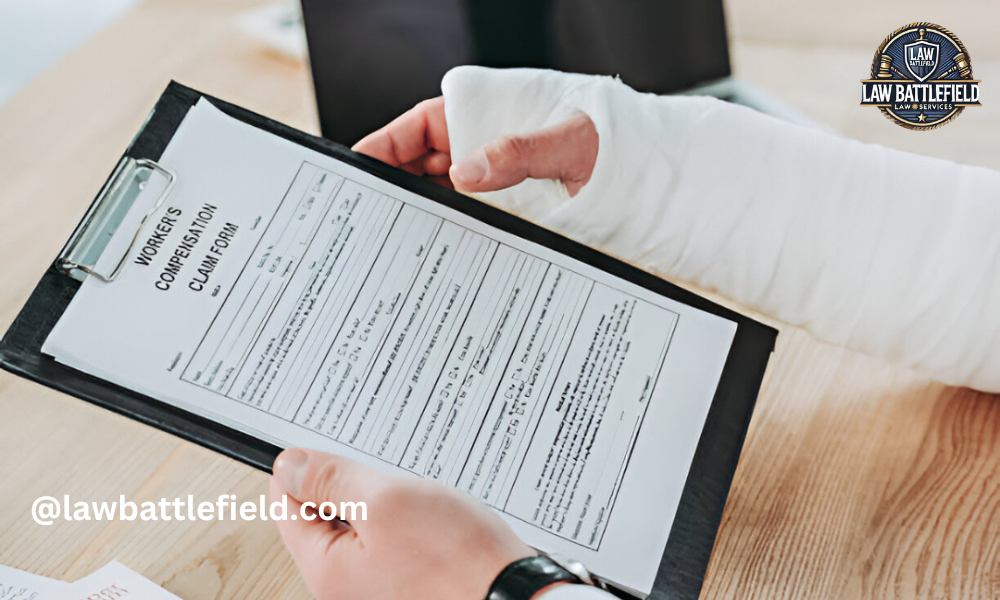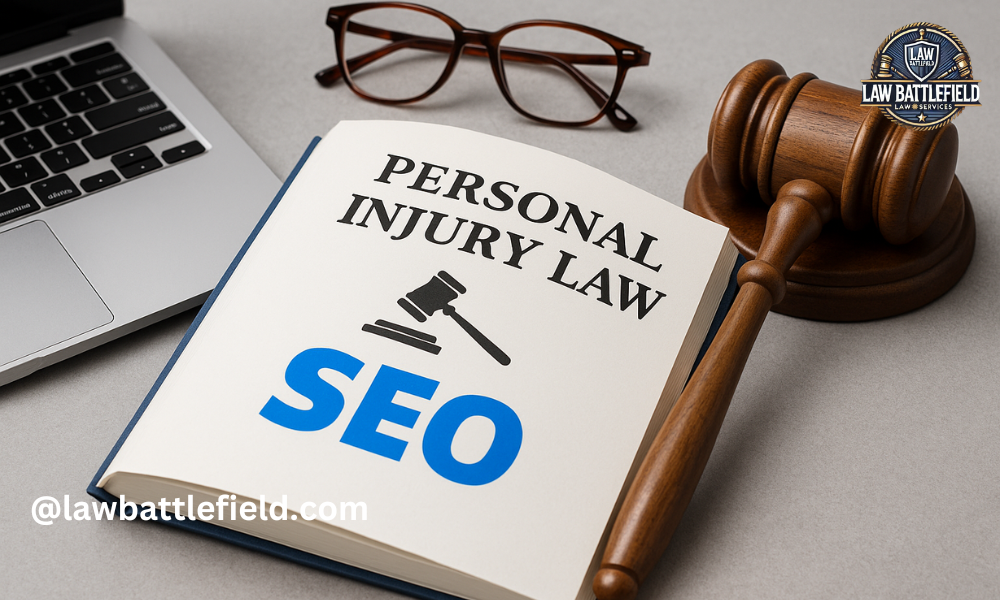Introduction To Georgia Statute Of Limitations Personal Injury
When someone suffers an injury due to an accident or another person’s actions, they may want to file a lawsuit to get compensation. However, they can’t wait forever to do this. Each state, including Georgia, has laws called statutes of limitations. These laws set time limits for when you can bring a lawsuit after an incident.
In Georgia, the statute of limitations for personal injury cases is important to understand. It directly affects how long you have to take legal action after being hurt. Knowing these time limits ensures you act quickly and don’t lose your right to seek compensation.
For most personal injury claims in Georgia, the statute of limitations is two years. This means you generally have two years from the date of your injury to file a lawsuit. If you miss this deadline, you might not be able to get compensation for medical bills, lost wages, or other damages.
In the following sections, we will explain everything you need to know about Georgia’s statute of limitations for personal injury, including special cases and exceptions. This guide will help you understand your rights and why acting promptly is crucial when filing a personal injury claim in Georgia.
What Is The Georgia Statute Of Limitations For Personal Injury?
The statute of limitations is a law that sets a deadline for filing a lawsuit. It defines how long a person has to take legal action after an event occurs. If you file your claim after the statute of limitations has expired, the court will likely dismiss your case, meaning you won’t be able to seek compensation.
In Georgia, the statute of limitations for personal injury claims is typically two years. This time limit starts from the date of the injury or accident. For example, if you were hurt in a car accident, you would generally have two years from the accident date to file a personal injury lawsuit.
The rule is outlined under O.C.G.A. § 9-3-33 (Official Code of Georgia Annotated). This law states that actions for injuries must be brought within two years from when the right to sue begins. Understanding this is essential because failing to meet this deadline can mean losing the chance to get compensation, no matter how serious the injury or strong the case.
So, if you’ve been injured, it’s best to act promptly. Knowing Georgia’s statute of limitations will help you protect your rights and take the necessary steps without delay.
Why Statutes Of Limitations Exist
The statute of limitations serves an important purpose in the legal system. It sets a time limit for when you can file a lawsuit after an injury or accident. But why are these time limits necessary?
One main reason is to ensure fairness. It would be unfair to allow lawsuits to be filed many years after an incident because, over time, it becomes harder to gather reliable evidence. Witnesses might forget details, and important records may be lost or destroyed. By having a set period to file claims, the law ensures that cases are based on fresh, accurate information, making the legal process more just.
Another benefit of the statute of limitations is that it preserves evidence. When you file a lawsuit soon after an incident, it’s easier to collect evidence like photos, videos, medical reports, and witness statements. These pieces of evidence are crucial in proving your case, and the sooner they are gathered, the more reliable they tend to be.
Lastly, these time limits encourage timely legal action. Knowing that there is a deadline pushes people to act quickly, seeking legal advice and making informed decisions. This helps prevent the courts from becoming clogged with old cases and ensures that victims get the compensation they deserve as soon as possible.
Types Of Personal Injury Claims And Their Time Limits
Different types of personal injury claims in Georgia have varying time limits. Here’s a breakdown of each, along with the specific deadlines you need to be aware of:
General Personal Injury Claims:
- The statute of limitations for most personal injury cases, like car accidents or slip-and-fall incidents, is two years from the date of the injury. This means you must file your lawsuit within two years, or you risk losing the right to seek compensation.
Medical Malpractice Claims:
- For cases involving medical errors or negligence, Georgia has a two-year statute of limitations. However, there is also a five-year statute of repose, which means you cannot file a claim more than five years after the date of the alleged malpractice, even if you discover the problem later. This five-year limit applies regardless of when the injury was discovered.
Product Liability:
- If you were injured due to a defective product, you have two years to file a personal injury claim. Georgia also has a ten-year statute of repose for these cases, meaning that if the product was purchased over ten years ago, you generally cannot file a claim.
Wrongful Death:
- When a person dies due to someone else’s negligence or intentional actions, the family has two years from the date of death to file a wrongful death lawsuit. This time limit is separate from the statute for general personal injuries.
Workers’ Compensation:
- If you are hurt on the job, the deadline to file a claim for workers’ compensation benefits is shorter. You must file within one year of the injury. Reporting the injury to your employer as soon as it happens is also essential for the claim process.
Property Damage:
- For cases involving damage to property, such as damage to your car or home, Georgia law sets a four-year statute of limitations. This is a longer period compared to personal injury claims, giving you more time to address property-related issues.
Knowing these time limits can help you act quickly and ensure you don’t miss the opportunity to file your claim. Each type of claim has its own rules, so it’s important to understand which category your case falls under and take appropriate action within the allowed time frame.
Exceptions To The Statute Of Limitations
While the statute of limitations sets clear deadlines for filing personal injury claims, there are some situations where these time limits can be adjusted. Georgia law allows for exceptions that can either pause (“toll”) or shorten these periods, depending on the circumstances.
Tolling The Statute Of Limitations
“Tolling” refers to situations where the clock on the statute of limitations is temporarily paused, giving you more time to file a claim. Some common scenarios where tolling might apply include:
- Minors: If the injured person is under 18, the statute of limitations is usually tolled until they turn 18. This means that the two-year clock for filing a personal injury claim starts on their 18th birthday, giving them until they turn 20 to file.
- Mental Incapacity: If the victim is mentally incapacitated, the statute of limitations may be paused until they are able to manage their affairs or have a guardian appointed. This ensures that individuals who are unable to act on their own behalf still have the opportunity to pursue a claim.
- Defendant Out of State: If the person responsible for the injury leaves Georgia after the incident, the statute of limitations can be paused until they return. This prevents defendants from avoiding responsibility simply by moving out of state.
- Fraud and Undiscovered Injuries: In some cases, injuries might not be immediately apparent, such as those resulting from toxic exposure or defective products. If an injury is discovered late, the statute of limitations may be tolled until the injury or its cause is identified. For example, if a person is exposed to harmful chemicals but doesn’t develop symptoms until years later, the clock may start when the injury is reasonably discovered.
Special Cases
Filing Against Government Entities:
- If your claim is against a government body, such as a city or the state of Georgia, you need to follow special rules. For claims against city or county governments, you must file a notice of your intention to sue (known as an “ante litem notice”) within six months. For state claims, you have one year to file this notice. If you miss these deadlines, you lose the right to pursue compensation, even if your claim is valid.
Delayed Discovery Of Injury Or Cause:
- Sometimes, the statute of limitations may not begin until the injury or its cause is discovered. This is common in cases of toxic exposure, medical malpractice, or defective products. For example, if a person is injured by a medical device but the effects aren’t noticeable until later, the statute might start when the person realizes the device caused their condition. However, it’s important to note that even in these cases, there may be a maximum time limit, known as a statute of repose, which caps the total time available to file a claim regardless of when the injury is discovered.
Understanding these exceptions can help protect your rights if you find yourself in a situation where standard rules don’t seem to apply. If you believe your case might qualify for one of these exceptions, it’s best to consult with a legal professional who can provide guidance based on the specifics of your situation.
Importance Of Filing Personal Injury Claims On Time
Filing a personal injury claim within the set time limits is crucial for several reasons. Acting promptly not only helps strengthen your case but also increases the chances of receiving the compensation you deserve. Here are some key reasons why it’s important to file on time:
Preservation Of Evidence
Filing your claim early helps preserve critical evidence. Evidence such as photographs, video footage, medical reports, and accident scene details are essential for building a strong case. Over time, this evidence can be lost, altered, or destroyed, making it harder to prove what happened. Additionally, witnesses’ memories fade over time, and their testimonies may become less reliable. By filing your claim quickly, you ensure that all evidence is fresh and accurate, increasing the likelihood of a successful outcome.
Legal Strategy
When you engage a lawyer early on, they have more time to prepare a solid legal strategy. This means they can thoroughly investigate your case, gather essential documents, and build strong arguments on your behalf. The more time your attorney has, the better they can craft a strategy that maximizes your chances of getting fair compensation. Filing within the statute of limitations also allows your lawyer to negotiate with insurance companies or other parties without the added pressure of an approaching deadline.
Financial Relief
Filing your claim as soon as possible can lead to quicker financial relief. Personal injury claims often involve costs like medical bills, rehabilitation expenses, and lost wages due to time off work. The sooner you start the legal process, the faster you may receive compensation to cover these costs. This financial support can be crucial for managing ongoing medical care and helping you get back on your feet after an accident.
In short, adhering to the statute of limitations for personal injury claims in Georgia is vital for preserving evidence, developing a strong legal case, and ensuring timely access to compensation. If you have been injured, it’s in your best interest to consult a lawyer as soon as possible to protect your rights and avoid missing important deadlines.
What Happens If You Miss The Filing Deadline?
Missing the statute of limitations for a personal injury claim can have serious consequences. The statute sets a strict deadline, and if you don’t file your claim within that period, you may lose your legal right to seek compensation. Here’s what you need to know:
Consequences Of Missing The Statute Of Limitations
If you miss the deadline, the court will likely dismiss your case. This means you won’t be able to recover any damages for your injury, no matter how strong your evidence or how severe your injuries. Missing the statute of limitations could leave you responsible for all your medical bills, lost wages, and other costs related to the injury.
Potential Loss Of The Right To Seek Compensation
The statute of limitations is strict, and once it expires, your legal claim is essentially barred. Even if you have a legitimate case, the court will refuse to hear it if it’s filed late. This is why understanding and adhering to the filing deadlines is critical for anyone looking to pursue a personal injury claim in Georgia.
Possibility Of Exceptions Or Extensions
In some rare cases, there may be exceptions that allow for the statute of limitations to be extended, but these are often complex and not guaranteed. For example, if the injury was not immediately apparent, such as in cases involving toxic exposure or medical malpractice, the statute may be tolled (paused) until the injury is discovered. Similarly, if the person responsible for your injury leaves the state, the clock may pause until they return.
However, these exceptions are rare and difficult to navigate. It’s best not to rely on them as a solution and instead ensure you file your claim within the standard timeframe. If you believe your case might qualify for an extension, consult with a legal professional who can assess your situation and advise you on the best course of action.
The Role Of Personal Injury Attorneys
Navigating the complexities of a personal injury case can be challenging, especially when dealing with strict legal deadlines and possible exceptions. That’s why consulting with a personal injury attorney immediately after an incident is crucial. Here’s how a lawyer can help:
Importance Of Consulting With A Lawyer Immediately After An Incident
After an accident, time is of the essence. Consulting with a lawyer right away ensures you get the right guidance from the start. Attorneys can advise on what steps to take, including gathering evidence, speaking with witnesses, and documenting the injury. This early action can significantly impact the outcome of your case.
Moreover, a lawyer can help you understand the statute of limitations and make sure your claim is filed on time, so you don’t lose your right to seek compensation. Without prompt legal help, you might miss critical deadlines, jeopardizing your case.
How An Attorney Can Help Navigate Exceptions And Tolling Provisions
One of the biggest benefits of hiring an attorney is their ability to navigate complex legal rules, including exceptions to the statute of limitations. Cases involving minors, mental incapacity, fraud, or out-of-state defendants can all affect how the deadline is calculated. An experienced attorney can identify if your situation qualifies for tolling or an extension and ensure your claim is filed within the correct timeframe.
Additionally, if you are dealing with delayed injury discovery (e.g., from toxic exposure or a medical error), a lawyer can help determine when the statute of limitations began and whether it’s still possible to file a lawsuit.
Benefits Of Professional Legal Representation In Personal Injury Cases
Having a skilled attorney on your side can significantly improve your chances of a successful outcome. Lawyers bring:
- Knowledge of legal procedures: They understand the law and how to build a strong case, including gathering and presenting evidence.
- Negotiation skills: Experienced lawyers can negotiate with insurance companies to ensure you receive fair compensation. Without proper representation, you might settle for less than what you deserve.
- Peace of mind: Knowing that a professional is handling your case allows you to focus on recovery while they take care of legal matters.
In summary, a personal injury attorney is essential for navigating the legal complexities of your case, ensuring deadlines are met, and maximizing your chances of getting the compensation you need and deserve.
Conclusion
Understanding the Georgia statute of limitations for personal injury is vital if you plan to seek compensation for an accident or injury. Key points include:
- Filing within two years for general personal injury claims.
- Knowing exceptions, such as tolling for minors or mental incapacity.
- Acting quickly to preserve evidence, get financial relief, and build a solid legal strategy.
If you’ve been injured, it’s important to seek legal advice promptly. An experienced attorney can guide you through the process, help you understand your rights, and make sure you don’t miss any critical deadlines. Acting now can make all the difference in the success of your personal injury case.
Frequently Asked Questions (FAQs)
How Can The Statute Of Limitations Be Extended?
In general, the statute of limitations cannot be easily extended. However, there are some exceptions that may “toll” or pause the time limit. For example:
- If the injured person is a minor (under 18), the statute of limitations is paused until they turn 18. They then have two years from their 18th birthday to file a claim.
- If the victim is mentally incapacitated, the clock may be paused until they regain the ability to act on their own behalf.
- If the at-fault party leaves the state after causing the injury, the statute of limitations may be paused until they return, ensuring they cannot avoid responsibility by relocating.
These exceptions can be complex, and proving them often requires legal assistance. Consulting with a lawyer is essential if you think your situation might qualify for an extension.
Are There Different Rules For Claims Against Government Entities?
Yes, claims against government entities in Georgia follow different rules and have much shorter deadlines:
- For claims against city or county governments, you typically have to file an “ante litem notice” within six months of the incident.
- For claims against the state government, the notice must be filed within one year.
These notices must be submitted correctly and on time. Failing to meet these deadlines will usually mean you cannot pursue a claim against the government, so it’s critical to act quickly and seek legal advice if you’re considering suing a government entity.
Can I Still File A Claim If I Didn’t Discover My Injury Until Later?
In certain cases, yes. Georgia law allows for the statute of limitations to be tolled if the injury was not immediately apparent. This is often seen in cases of:
- Toxic exposure: where symptoms might not show up until months or years later.
- Medical malpractice: where a mistake made by a healthcare provider might not be discovered until a later date.
In these situations, the statute of limitations may begin when the injury is reasonably discovered, not when the event that caused it occurred. However, there is usually a statute of repose, which puts a maximum limit on how long after the original event a claim can be filed, even if the injury is discovered later (e.g., five years for medical malpractice).
What Should I Do If The At-Fault Party Has Left The State?
If the person responsible for your injury leaves Georgia, the statute of limitations might be paused until they return. This rule ensures that defendants cannot evade liability by moving to another state. The law will continue to “pause” the time limit until the at-fault party is back within Georgia’s jurisdiction, allowing the injured person more time to file a claim.
Was this article helpful? Check out more on Lawbattlefield.com
Expert Advice From A Bad Faith Insurance Attorney: How To Handle Unjust Claim Denials





